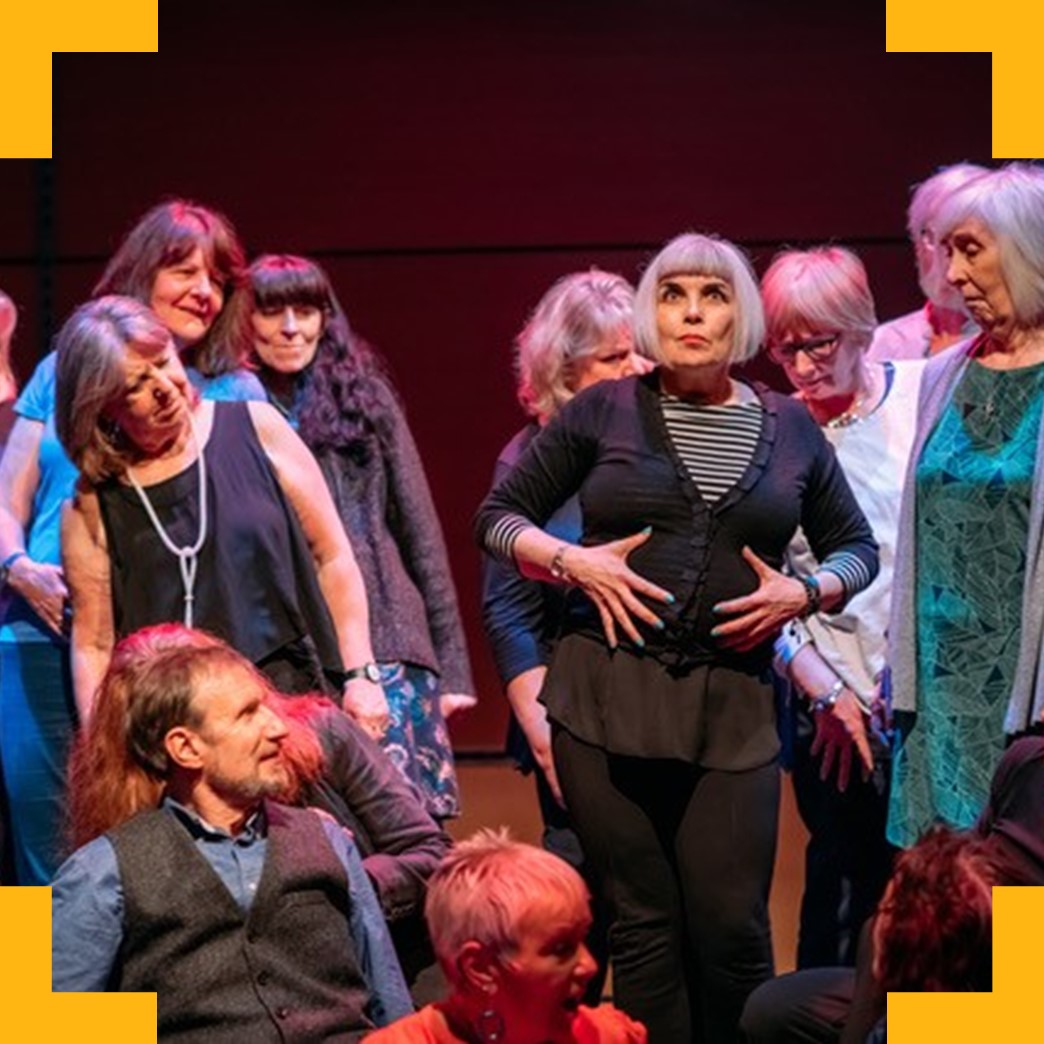What is the best way to talk about menopause?
How can an supportive and informative conversation about menopause be started without embarrassing or putting off people? This research seeks to create an intervention that helps to aid open conversations about menopause.

The non-medical experience of menopause is an under-researched taboo and becoming increasingly important due to large numbers of women remaining in work for longer and therefore experiencing menopause transition whilst in employment. Previous research has established how difficult it is to talk openly about menopause – in work and private settings – and yet how beneficial it is to the well-being of those experiencing menopause transition and those indirectly affected (Beck et al. 2018, 2020a, b, Atkinson et al. 2021). The benefit of such discussions emerges from not feeling alone, exchanging experiences and possible actions or advice, thus increasing awareness and knowledge.
What did the project involve?
This research project asked: what is the best way to talk about menopause? How can an open, supportive, and informative conversation be started without embarrassing or putting off people, or even insulting them with the assumption that menopause might be an issue. This project sought to explore:
- Does the invisibility older women may experience as a result of gendered ageism make talking about menopause more difficult?
- Would a focus on a potential positive side of menopause rather than on menopause symptoms make a conversation easier?
- Is social clowning and comedy useful to overcome the menopause taboo or does it further supress open and constructive dialogue?
- Do women at different ages think and talk about menopause in different ways?
The research process involved three activities: literature and archival searches for ideas and inspirations on how to start conversations about menopause; discussions on experiences and desires for menopause conversations as part of the Pause not Full Stop Engaging Libraries activities on menopause; and a Tricky Hat Production performance on menopause.
Who are the team and what do they bring?
- Vanessa Beck (School of Management, University of Bristol) is a sociologist of work and employment and has extensive experience of researching menopause in workplace settings, using surveys, in-depth, semi-structured interviews, and participant observation. Her background is in researching those on the margins of the labour market, including older workers, those not in education, employment or training, and individuals experiencing unemployment or underemployment. She has worked with a range of trade unions, charities, statutory and private organisations.
- Yvonne Melville (OnFife, Fife Cultural Trust) runs ‘Engaging Libraries’, which supports libraries to run public engagement activities on research about health, society, and culture. The “Pause not Full Stop” project within this is focussed on menopause.
- Fiona Miller (Tricky Hat Productions) brings expertise in working with an over 50s theatre group and using bottom-up guerrilla sessions to support people in a transition and help them to find their voice.
What were the results?
The project resulted in the following outcomes:
- A guerrilla session and a collaborative performance around menopause that does not specify to participants what the outcome or ‘take’ on menopause should be.
- Two short films on the workshops and the performance to document possible conversations.
- A “Talking Menopause Toolkit” that will present options and opportunities for people to think about menopause conversations in different ways. This toolkit can be accessed on the Onfife website Talking-menopause-toolkit
- Blog posts
- A Policy Bristol briefing
- An event showcasing the project’s outputs and exploring different methods for beginning conversations about menopause.
The research team continued discussions and co-learning with the Brigstow Funded “Living Well Through the Menopause” and look for ways to continue the projects legacy through co-writing and further research funding.

